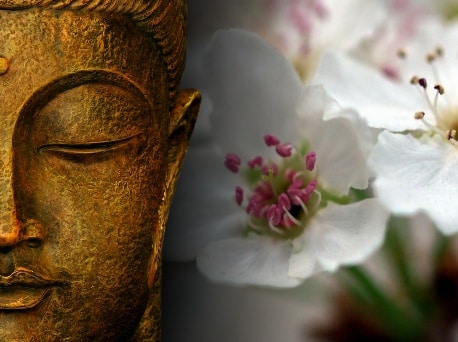A simple strategy to cope with those times in life when we are stuck in a seemingly hopeless situation, writes SAROJA SRINIVASAN

A ‘koan’ is defined as a paradox to be meditated upon that is used to train Zen Buddhist monks to abandon ultimate dependence on reason, and to force them into gaining sudden intuitive enlightenment.
In everyday life we may not actively seek spiritual enlightenment, but we certainly need ideas and strategies to get through an impasse, when we feel ‘stuck’. Every situation that produces uneasiness and conflict within our minds needs attention within a framework that will help reduce this uneasiness. At such times we need to ask ourselves, “What is my expectation of this situation?”; “What limitations do myself and others involved have?”; “I need to accept limitations however unacceptable they are, by limiting my expectations”.
To maintain peace within oneself, regardless of whatever the situation may be, applying a simple koan of three inter-related words summarises the direction we may need to take. At a point when things are at a standstill, our thinking has to change if we have to progress.
These three words are: Expectations, Limitations and Acceptance – accept limitations; limit expectations; expect the unacceptable.
Acceptance
This word seems to appear in our thoughts in a negative way – passive, giving in, inaction, failure, dejection, long suffering, uncomplaining, compromise and a sense of hopelessness. Yet, whatever situation we find ourselves in, the undeniable fact is that we are already there. Often we are unable to retract immediately, or may not be able to even in the future. We act within the ‘given’ of that moment, maybe through outward actions like impulsively saying something rude, acting in a hostile manner, or privately thinking of someone’s action in a negative way and later finding it to be wrong.
At such times, the only avenue to move forward is to start at that point. This requires taking stock of everything instantaneously, and accepting the given of that moment. For example, being in a situation that has become difficult many years after a decision was made and finding it intolerable at present, one may not be accepting of it and go back to delving into the past, often ruminating ‘if only…’, ‘maybe…’ which is totally fruitless, and in fact only increases present frustration.
In relationship conflicts, many find that even after repeated requests for others to change, or even after being verbally harsh, they do not even make an effort. The only solution would be to accept the person as they are, and not how you would like them to be. Accept, keep cool and move on.
Limitations
In an ideal world we do not have any limitations – mentally the capacity of our brain and mind is so vast and untapped that anything is possible within the confines of one’s mind. The common saying, ‘the sky is the limit’ cannot always be applied to everything. On a practical level, limitations abound. From the trivial to the most profound, life constantly throws at us circumstances that are totally beyond one’s choice or volition.
The limitations that confront us may be financial, physical or geographical. We may lose our capacity to earn an income or as we age, we cannot do many things as well or as fast as we did earlier. These are limitations; we can win over some, but not others. Such limitations may be present for others with whom we live or work.
Repeatedly we try to overcome limitations that are beyond changing, and feel frustrated. We may be aware of alternatives for some of these issues, but we are unwilling to accept them. We constantly keep moving the goalpost, wanting better things or have a fanciful hope that somehow things will change despite the odds against us.
We have limitations and so do others, and we need to accept them.
Expectations
We all have expectations, some appropriate and some not; some realistic, others fanciful. People will often say they do not have any expectations – it’s not true. We do have expectations, either of ourselves or others. More often than not it is in our expectations of others that our disappointments arise. For perfectionists, it is their expectation of themselves that creates problems.
We expect most people to behave responsibly, respectfully or with understanding. Others expect the same of us. Sometimes these expectations come from social conditioning within our own subcultures that have become ingrained, a right to be demanded. This is where problems arise. Many expectations that were appropriate earlier in different circumstances, may not be appropriate now. For example, the roles within the family in a changing world may be completely different to what they were when one was growing up.
Even if some of these expectations seem unreasonable, we continue to hold onto them. Perfectionists expect themselves and others around them to be perfect in everything all the time. Surely this is almost impossible, for many things have several unknown limitations of which we may not even be aware. The sense of disappointment and frustration when unreasonable expectations are not met, is indeed profound.
In a positive sense, high personal expectations can motivate people to make concerted efforts and persevere to achieve great heights, but when they are unreasonable they completely backfire and can be distressing.
We need to limit expectations of ourselves and others; accept limitations and sometimes, expect that unacceptable things will happen.
Somehow applying this koan to any situation, however trivial, allows one to navigate through the journey of life, enjoying calm seas and riding through everyday storms.
A koan for a happy life

Reading Time: 4 minutes



